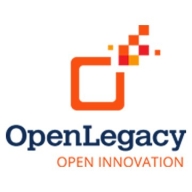

Microsoft Azure API Management and OpenLegacy compete in the API management category. Azure API Management seems to have the upper hand with its strong integration within Microsoft ecosystems and competitive pricing, while OpenLegacy provides unique legacy integration capabilities that some users find valuable despite its higher cost.
Features:Azure API Management provides API gateways, developer portals, and security features that integrate efficiently with Azure services. It also offers robust monitoring, access control, and subscription management for easy tracking and usage analysis. On the other hand, OpenLegacy focuses on legacy system integration, providing API generation without revamping existing systems. It enables seamless connections to older platforms, making it adaptable and open-source, which is beneficial for customization requirements.
Room for Improvement:Azure API Management could improve in offering more flexible multi-cloud integration outside the Microsoft environment, enhancing real-time customization features, and reducing complexity in large-scale deployments. OpenLegacy can work on simplifying its technology to make it more user-friendly, offering more streamlined support for non-legacy systems and improving documentation for better usability with mainstream cloud services.
Ease of Deployment and Customer Service:Azure API Management is straightforward to deploy within Microsoft environments, with comprehensive support resources and a broader service network. OpenLegacy, although complex due to legacy interactions, offers expert support and flexible deployment options tailored to customer needs, facilitating smoother legacy transitions.
Pricing and ROI:Azure API Management provides a clear pricing model with attractive ROI potential, especially for businesses using Azure services. OpenLegacy’s pricing mirrors its special legacy integration abilities, requiring a significant initial investment but promising high ROI by lessening modernization costs. Azure offers a lower entry cost, while OpenLegacy justifies its price with specific integration benefits.
| Product | Market Share (%) |
|---|---|
| Microsoft Azure API Management | 15.0% |
| OpenLegacy | 0.8% |
| Other | 84.2% |
| Company Size | Count |
|---|---|
| Small Business | 23 |
| Midsize Enterprise | 11 |
| Large Enterprise | 53 |
Microsoft Azure API Management offers a comprehensive solution for managing APIs, ensuring security, integration, and access across cloud environments. It enables seamless API orchestration and supports flexible management systems, making it valuable for API-driven architectures.
Microsoft Azure API Management is an advanced platform designed for seamless API integration and management within Microsoft's ecosystem. It provides robust security capabilities, including access control and Active Directory integration. The platform features a developer portal for easy API documentation and testing, along with real-time monitoring, analytics, and configurable policies to enhance API behavior. With hybrid cloud support and API orchestration, users gain flexibility and the ability to monetize APIs through subscriptions. The platform aids businesses in modernizing their applications and processes, but users have highlighted the need for enhanced scalability, third-party integration, improved documentation, and more comprehensive pricing models.
What are the most important features of Azure API Management?Azure API Management is widely implemented across industries like finance, healthcare, and retail to integrate and manage internal and external APIs. Businesses use it for secure connections, microservices support, and modernizing legacy systems. It's also adopted for subscription models and access control, aiding companies in automating and enhancing their operational processes.
OpenLegacy helps organizations quickly launch innovative digital services by extending their core back-end systems to the web, mobile and cloud in days or weeks versus months. Our microservice-enabled API integration and management software quickly reduces project backlog by automating and accelerating microservices and API creation, deployment, testing and management from core applications, mainframes and databases. Together, business and IT teams can quickly, easily and securely meet consumer, partner or employee demands for digital services without modernizing or replacing core systems, and without special programming skills or invasive changes to existing systems and architectures. OpenLegacy is designed for ongoing management of microservices APIs and is based on open standards, so our software plays nice with your current technology stack and supports agile, DevOps and continuous development. Learn why leading companies choose OpenLegacy at www.openlegacy.com.
We monitor all API Management reviews to prevent fraudulent reviews and keep review quality high. We do not post reviews by company employees or direct competitors. We validate each review for authenticity via cross-reference with LinkedIn, and personal follow-up with the reviewer when necessary.